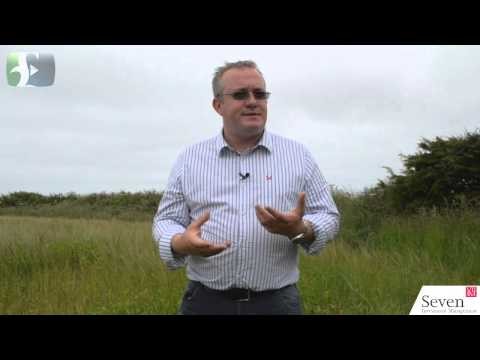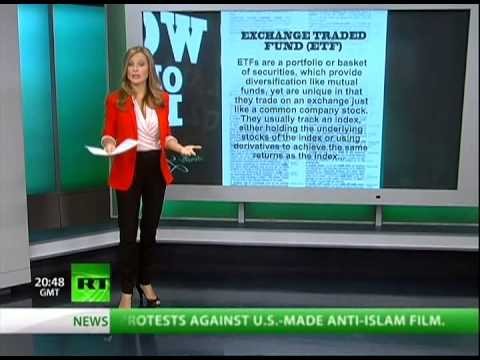Dollar Rally Sparks Record Hedge Demand in ETF Boon Currencies Bloomberg Business
Post on: 19 Май, 2015 No Comment

Nov. 21 (Bloomberg) — As strategists forecast the dollar’s world-beating rally to extend through 2015, U.S. investors are pouring record amounts of cash into funds that protect them against the losing side of the trade.
Assets invested in U.S. exchange-traded funds that hedge currency risk grew 18 percent since September to $21.2 billion, data compiled by Bloomberg show. That’s the biggest quarterly increase since mid-2013.
The funds are proving their worth. While the $4 billion WisdomTree Europe Hedged Equity Fund returned 3.1 percent this year, the $7.4 billion iShares MSCI EMU ETF — an unhedged fund that also invests in European stocks — lost 7.7 percent.
“The dollar is in the beginning of a multi-year strengthening pattern,” Dodd Kittsley, the New York-based head of ETF national accounts and strategy at Deutsche Bank AG’s Deutsche Asset & Wealth Management unit, said in a Nov. 17 phone interview. “Investors are seeing that if you pick the right market but ignore the currency implications, you can still lose.”
The greenback has benefited from a U.S. economy that’s strengthened enough for the Federal Reserve to end its dollar-debasing bond-purchase program and consider the timing of its first interest-rate increase since 2006. That contrasts with Japan and the euro region, where officials are battling deflation with further stimulus policies amid record-low borrowing costs.
Gains Forecast
The dollar has strengthened against all of its 16 major peers since the end of June. It climbed more than 9 percent to trade at $1.2395 per euro as of 12:01 p.m. in New York, and jumped 14 percent to 117.72 yen, after touching a seven-year high of 118.98 yesterday.
Deutsche Bank’s Kittsley predicts the dollar will advance to $1.15 per euro in 2015, $1.05 in 2016 and 95 cents by 2017, a level not seen since 2002. Median forecasts of strategists surveyed by Bloomberg anticipate the dollar appreciating to $1.20 per euro and 120 yen by the end of next year.
“With rates so low, the cost of hedging in the developed world is very low, and the benefits have been very positive,” said Jeremy Schwartz, the New York-based director of research at WisdomTree Investments Inc. which manages 12 currency-hedged ETFs with $16.7 billion in assets. “As the risk from currency swings increase, it will trip up even the most sophisticated investors. And these offer reprieve.”
Growth Market
The number of U.S.-based exchange-traded funds that guard against currency swings when investing abroad has grown to 36 in 2014 from 13 at the start of last year, while assets rose by 42 percent, or $8.9 billion.
Hedged funds buy stocks, bonds or other assets in another country and then, using forward contracts, take a short position in the local currency when it’s forecast to weaken versus the dollar. Positions are reset monthly to match up with the assets under management within the respective funds.
In Japan, where the benchmark Nikkei 225 Stock Average has risen to a seven-year high even as the yen has tumbled to a seven-year low, the WisdomTree Japan Hedged Equity Fund — the largest currency hedged fund at $12.6 billion — has returned 8.6 percent in 2014. That compares with the $15.4 billion iShares MSCI Japan unhedged ETF’s loss of 4.2 percent.
Hedging ‘Essential’
“It used to be that, if you were betting on a country’s stocks, it meant you also thought the currency was going to gain,” said Michael Jones, chief investment officer in Richmond, Virginia, at RiverFront Investment Group LLC, which manages $4.9 billion. “But now, monetary policy — the thing that is catalyzing the stocks in these markets to go higher — is also putting pressure on the currencies, making hedging essential.”
RiverFront started buying Japanese hedged ETFs early in 2012, in anticipation of a stronger stock market and weaker yen, Jones said. Since the start of 2012, the yen has fallen 35 percent versus the dollar, while the WisdomTree Japan Hedged Equity Fund has returned more than 80 percent.

Just as ignoring rate swings has proven perilous, hedging strategies may backfire when exchange rates don’t move as forecast.
To David Woo, head of global rates and currencies at Bank of America Merrill Lynch in New York, the market’s assuming too fast a pace of dollar appreciation, and the shortage of skeptical bets on the currency leaves investors “very vulnerable to any bad news.”
Too Optimistic?
“The market is too optimistic about the U.S. when there are still hurdles that have to be climbed,” Woo said. “The U.S. has been stronger than the rest of the world, but the data hasn’t been that great. A lot of the good news has already been priced in.”
That hasn’t stopped hedge funds and other large speculators from boosting futures bets on dollar strength versus eight major peers to a record. The difference in the number of wagers on a gain compared with those on a drop — net longs — was 372,558 on Nov. 11, up from 366,737 a week earlier, according to data from the Washington-based Commodity Futures Trading Commission.
“The path of least resistance is up for the dollar,” said Jennifer Vail, the head of fixed-income research at Minneapolis-based U.S. Bank Wealth Management, which oversees $120 billion. “The rally is here, and it’s going to be here for a while.”
Vail predicted the dollar will trade at $1.2350 per euro at year-end and $1.22 on March 31.
To contact the reporter on this story: Cordell Eddings in New York at ceddings@bloomberg.net
To contact the editors responsible for this story: Dave Liedtka at dliedtka@bloomberg.net Kenneth Pringle, Paul Cox














